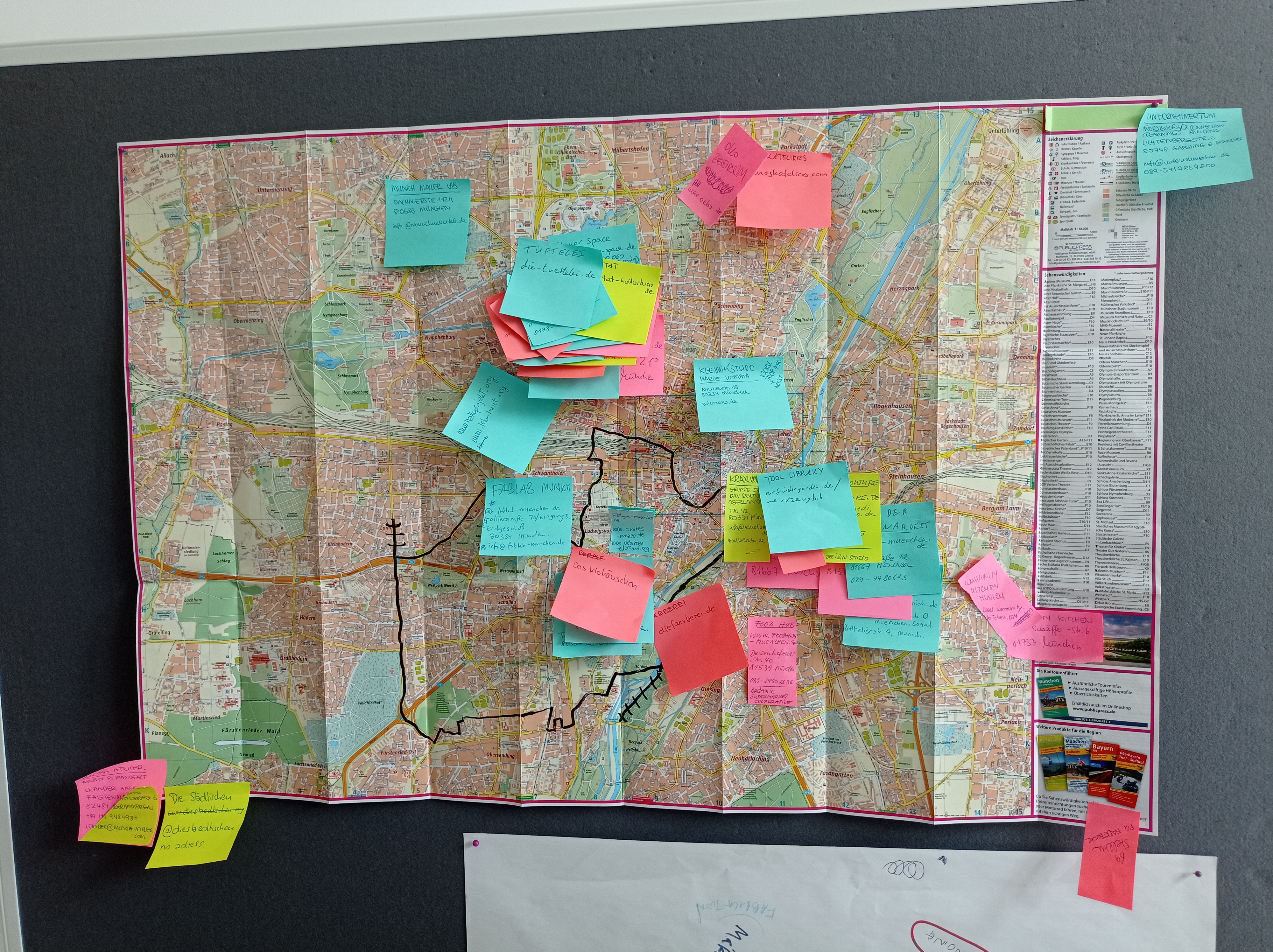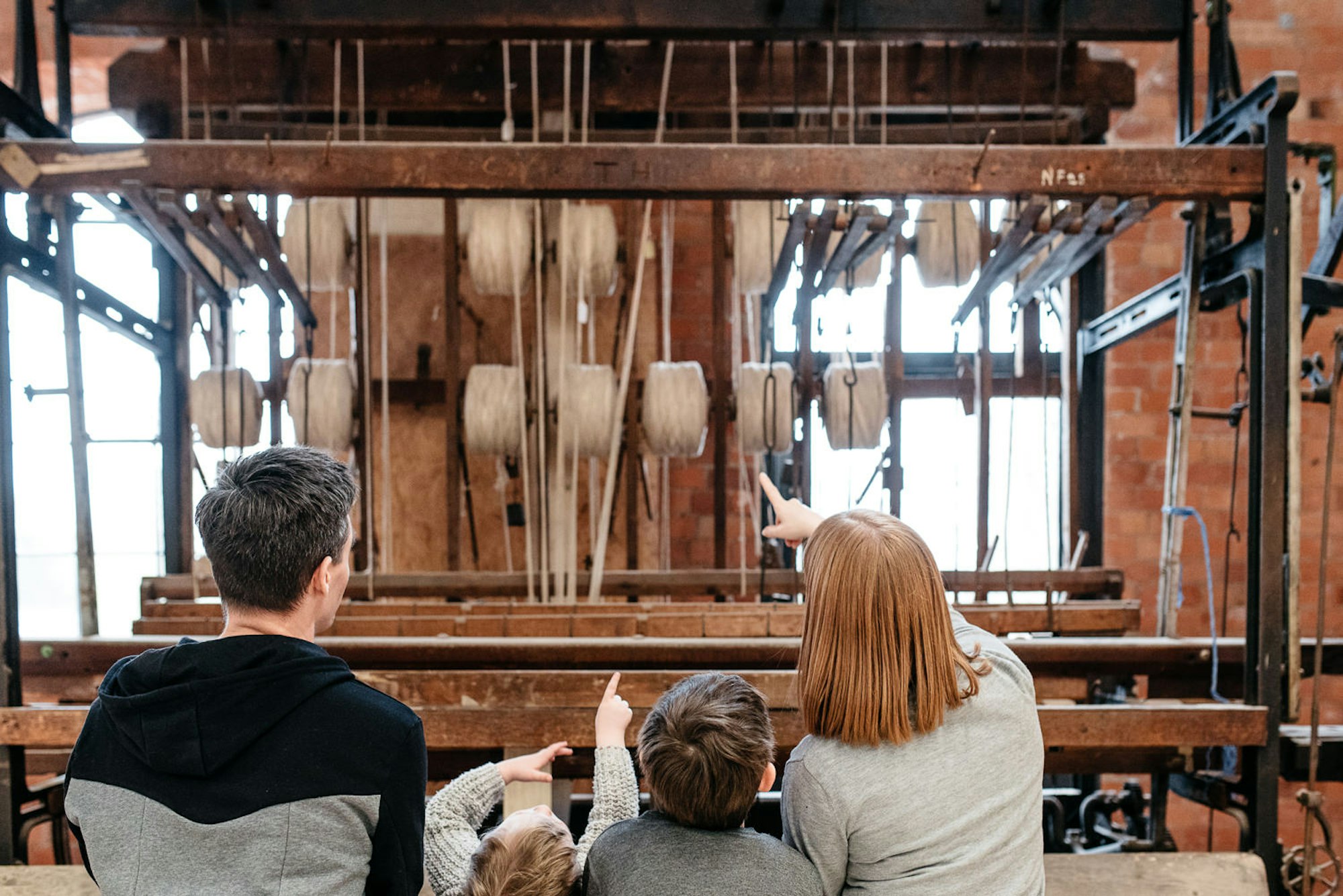How to understand factory jargon

You’ve used the list of manufacturers on Make Works to find a factory and now it’s time to pick up the phone and have a conversation. We know that talking to manufacturers can be a bit tricky – are you talking to the right person? Do they do what you’re looking for? Will they work with you? Will they be able to make it in time?… and then they start using all this jargon that really confuses you.
Here’s a list of some of the manufacturing terminology that you might hear when having those initial conversations with a local manufacturer. Have you heard anything else from a manufacturer that’s thrown you? Let us know and we’ll add it to the list.
Lead Time
This is how long it will take the factory or maker to produce what you’ve asked them to make.
Most listings on Make Works will have a standard lead time that they work to of say 4-6 weeks for a knitwear manufacturer or 2-3 days for a risograph printer. The lead time that they give you doesn’t usually mean that’s how long it will actually take to produce your pieces, rather that they’ve already got other clients booked in for most of that time so the available slot for your work will be towards the end of the specified lead time.

Some factories and fabricators are happy to be flexible with their lead times but do remember that you’re essentially asking them to put your work ahead of other clients so you can understand why it’s not something they’d always be willing to do.
Production run
These are the objects, products or pieces that you have asked to be made. If you are only having a one-off made that would be a production run of one, if you’re having 1000, that would be a production run of 1000. Manufacturers will often refer to your project as a production run e.g “your production run is due to go onto the machines this evening.”

Set up costs
Set up costs are the costs involved in getting a piece of machinery ready for your work. For example, if you’re having a piece of packaging foiled the set up cost would be the cost of the required die which the manufacturer would need to pay a die-maker to produce.

The set up costs will remain the same regardless of the size of your production run which is one of the reasons that the price per unit for small production runs is often higher. Some manufacturers will separate out the set up cost for you to see, whereas others will include it within the overall cost.
Minimum order quantity (MOQ)
‘What’s your MOQ?’
Some manufacturers will have a strict minimum order quantity whilst others won’t at all. Ultimately this comes down to the costs involved in acquiring and processing the materials, and running the machines.

If a manufacturer works largely by hand they’re far less likely to have a strict minimum order quantity, but you should still remember that the investment cost for them (communicating with you, processing your order and sending it out to you) is much the same whether they’re producing one piece or one hundred. This might be reflected in their willingness to take on the job, how quickly they can turn it around, or how much they charge you.
Overs
Overs are any pieces that have come off the production line that were over the quantity you ordered. Depending on the process it can be impossible for a manufacturer to make a specific number and they’ll always go over to make sure they don’t under deliver. Manufacturers won’t routinely send these overs out, as they wouldn’t want you to think they can just give away extras!

If it would be useful, It’s always worth checking with your manufacturer if there are any ‘overs’ that they can deliver in with the job once it’s complete.
Plant List
This is a list of the machines that a factory has onsite. If you’re looking for a specific machine you can ask the manufacturer if they could send you a copy of their plant list. You can also find a list of the machines that they have on their Make Works listing under 'machines.'

Downtime
This is when a factory isn’t producing anything. It might be planned downtime – either daily if a factory only operates its machines at certain times, or seasonally – you’ll find that lots of Scottish factories and UK manufacturers shut down over July and August.

It might also be unplanned downtime which is usually for making repairs due to a machine malfunctioning.
Factory Floor
Factories are usually divided into at least two sections – the factory floor and the office.

When you call up a manufacturer you’re likely to be put through to the office because the factory floor is noisy and anyone working on the factory floor will be doing a specific task so they won’t have time to take a call. If the person you’re looking to speak with is on the factory floor (production or technical managers are often here) you’ll just have to be patient and wait for them to call you back.
Off the shelf
If a manufacturer refers to something as ‘off the shelf’ this means that they haven’t made it. You might hear them say ‘we buy these off the shelf’ There’s usually a very good reason for ordering in ‘off the shelf’ pieces and components - and it’s most likely cost.

Do remember that just because a manufacturer isn’t making something themself, doesn’t mean that you’d be better off buying it yourself as they’re likely to be purchasing large quantities from trade suppliers at costs that you wouldn’t have access to.
Artwork
Artwork is simply a drawing produced to communicate the specifics of what it is you’re trying to produce to the manufacturer. On each Make Works listing you will find instructions on artwork under production specifics, along with file types accepted.
Artwork requirements will really vary from industry to industry – some manufacturers are just looking for a set of measurements, whilst others will require a full CAD (computer-drawn) drawing which they may well charge you for if it’s something you can’t produce yourself.

Finding out artwork requirements is something that’s great to clarify when you first get in touch with a manufacturer so that you know what they’ll be expecting from you. Most manufacturers will want to make it as easy as possible for you, but do remember that anytime they spend producing your artwork is costing them money.
Prototype
A prototype is the first piece of a larger production run produced by the manufacturer. Depending on the industry, a manufacturer might produce a prototype to check if you’re happy with how the piece will look, or as a way to test the processes and materials before starting the production run.

Some manufacturers will offer a separate prototyping service which they’ll charge for, whereas others will incorporate the cost into that of the larger production run. If you ask a manufacturer to produce a prototype ahead of a production run but then decide not to proceed you may well find a bill on your doorstep. Prototypes can be pretty costly for the manufacturer as they might need to order in specific materials, produce the piece largely by hand, or cover the set up costs for a process.
For more advice on working with manufacturers in Scotland read our piece: Tips for manufacturing in Scotland
WORDS
Kaye SymingtonJuly 13, 2017
Categories
Factories
Related stories
Factory Friday: Turnberry Rugs
Aero Leather - Scottish manufacturer of leather jackets
Factory Friday: Jay Surfboards
New Make Works Film: Glencraft Mattresses
Manufacturer Case Study: Trakke



